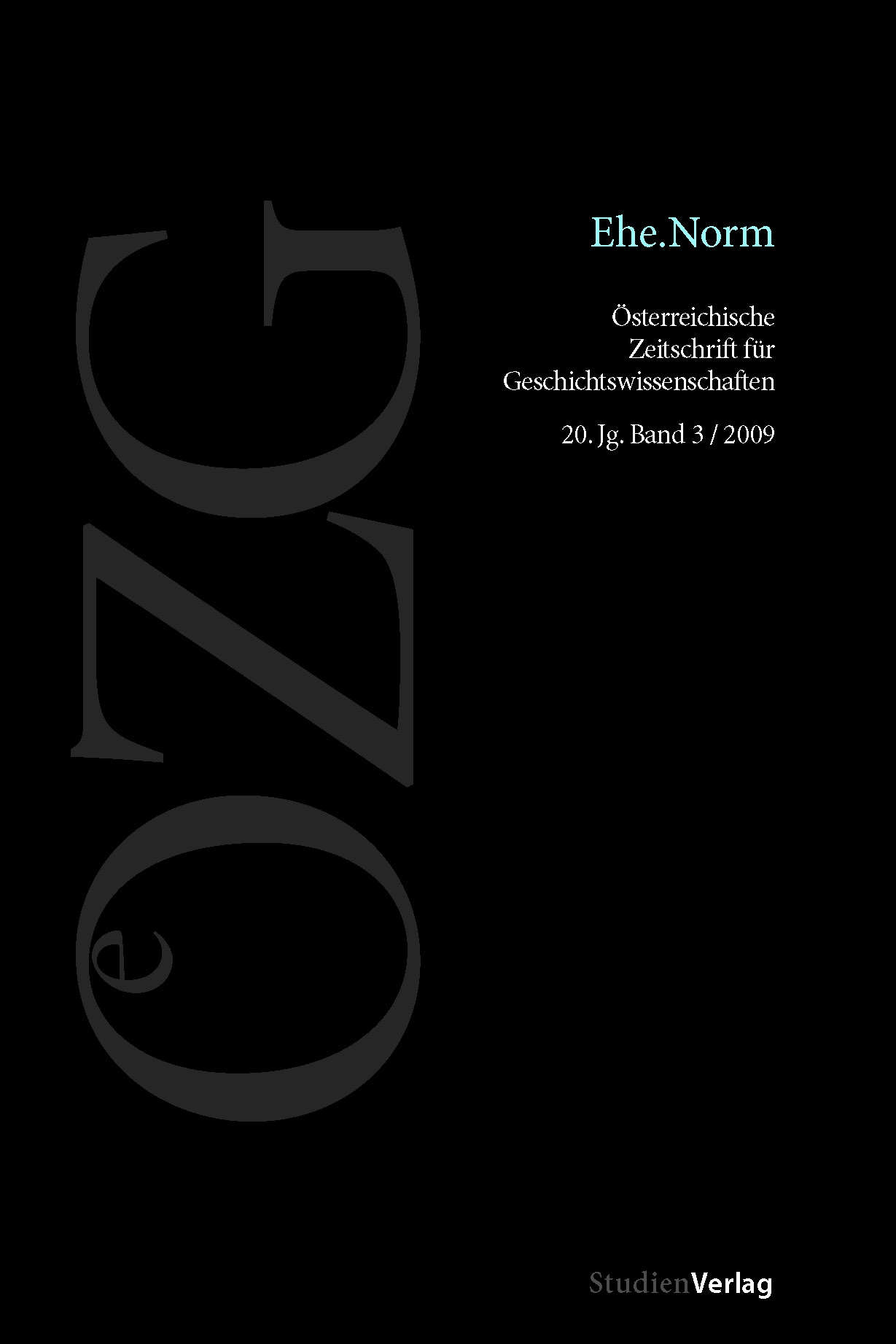Ehen vor Gericht
Vergeschlechtlichung im Spannungsverhältnis von Ehelichkeit und Prostitution in der Weimarer Republik
DOI:
https://doi.org/10.25365/oezg-2009-20-3-5Keywords:
marriage, prostitution, gender, norm, Weimar RepublicAbstract
The article examines the making of a normative image of matrimony in judicial practices during the years of the Weimar Republic in Berlin. A detailed analysis of two criminal trials from 1926 and 1931 will demonstrate the ways in which prostitution was constructed as a deviant opponent of marriage. These cases were chosen because they illustrate how judicial practice deals with elements of crime such as procuration, extortion and homosexuality as a mode of distinction and hence to differentiate these from normative images of matrimony. The aim of the article is to show how the norm operated dynamically in order to distinguish the ‘deviant’ from the ‘normal’ producing hierarchies of difference.


